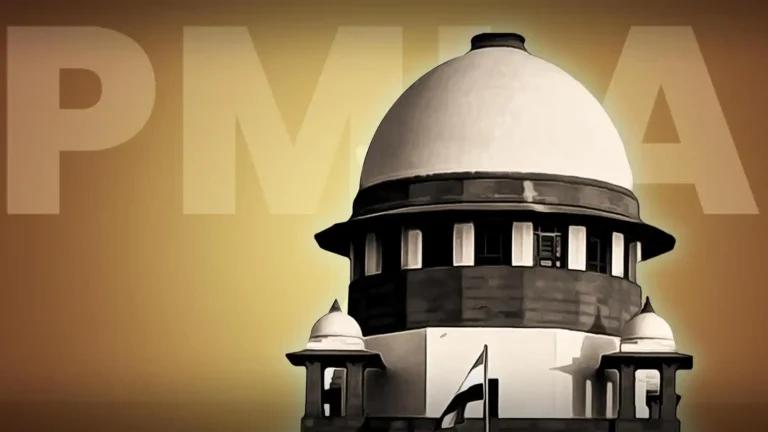The Supreme Court has issued a notice on a writ petition challenging the constitutional validity of Sections 50 and 63 of the Prevention of Money Laundering Act, 2002 (PMLA). The petition claims that these provisions violate Articles 14, 20, 21, and 300A of the Constitution.
A bench led by Chief Justice of India BR Gavai and Justice AG Masih has tagged this petition with a similar case already pending before the court — WP(Crl) 65/2023.
"Every criminal statute must satisfy the test of fair play."
Section 50 of PMLA grants the Enforcement Directorate (ED) powers similar to those of a civil court. It allows the ED to:
- Summon any person to provide evidence or produce records.
- Treat such proceedings as judicial under Sections 193 and 228 of the IPC.
- Impound records during proceedings by recording reasons.
Section 63 prescribes penalties for giving false information or non-compliance.
Read Also: Supreme Court Orders Uniform Pay and Allowances for Consumer Commission Members Across India
- Violation of Article 20(3):
The power to summon non-accused persons and record their statements may result in coercion or self-incrimination. - Call for Reconsideration of Vijay Madanlal Judgment:
The plea argues that the verdict in Vijay Madanlal Choudhary v. Union of India should be reviewed by a larger bench under Article 145(3) of the Constitution. - Lack of Transparency:
Non-disclosure of the ECIR (Enforcement Case Information Report) leads to arbitrary and unlimited investigation powers, amounting to a "roving and fishing" inquiry. - No Reason for Summons:
Calling individuals without disclosing reasons violates basic principles of criminal procedure and personal liberty.
"The ED officials are not ‘police officers’; hence, statements under Section 50 are not barred by Article 20(3).
The Supreme Court had earlier clarified in the Vijay Madanlal case that the procedure under Section 50 is considered an inquiry, not an investigation. Therefore, the protection against self-incrimination under Article 20(3) does not apply. The ECIR was also deemed an internal document, not equivalent to an FIR, and not mandatory to be supplied to the accused.
"Disclosure of grounds of arrest is sufficient. ECIR need not be furnished."
The petition has been filed through Advocate Ashish Pandey and Advocate Lipika Das.
Case Details : NSDPAY Technology Private Limited v. The Union of India & Anr | WP (Crl) 132/2025














